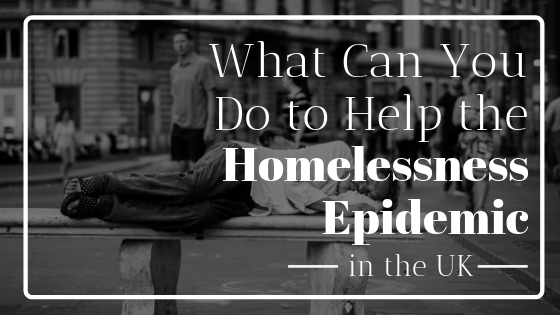The homelessness epidemic is reaching an all-time high in the UK. Also known as rough sleepers, these individuals are defined as people sleeping in open air environments, such as streets, bus shelters or doorways, or people in places that are not designed for habitation, such as car parks, barns, sheds, or makeshift shelters.
Over the past three years, this number has increased by 73%, which is an astounding rate. There are also large groups of hidden homeless people, those with temporary shelter or roofs over their heads but no home to call their own. While there is a lot of stigma surrounding the state of being homeless, the truth is that it’s often caused by external factors beyond someone’s control.
There are organizations that recognize the national urgency of this ever-growing problem. The Homelessness Reduction Act came into effect in 2017 as an effort by the government to help reduce the number of homeless people, as well as protect the increasing numbers of threatened homeless individuals and families in the United Kingdom.
The Combined Homelessness and Information Network (CHAIN) has been around for 50 years and they have worked tirelessly to try eradicating the homeless pandemic throughout the UK by helping people get back on their feet through empowerment by aiding in their own recovery. They also have teams who patrol the streets at night in search of people who need assistance and they provide beds, food, and resources to over 2,800 people. In addition to all that, they use a national referral service known as StreetLink, a joint effort with Homeless Link, to let the public notify them when a friend is in need or if someone has been spotted who needs support.
Having a public alert system is great, but as a bystander it can be frustrating to know what else you can do to aid people in this situation. Fortunately, there are a number of ways to help. Organizations like C4WS Homeless Project has been around since 2005 and they provide assistance to over 300 homeless people a year. The services they offer are priceless – they help with mental and physical problems, help people overcome addiction issues, assist with immigration matters, and provide welfare and housing advice.
They strongly encourage the public to help out in any way possible, whether it’s by donating money and/or items, or taking part in the countless volunteer opportunities, such as the daily upkeep involved with housing, taking part in laundry rotation, organizing room management, or just spending time with the temporary residents and providing companionship.
